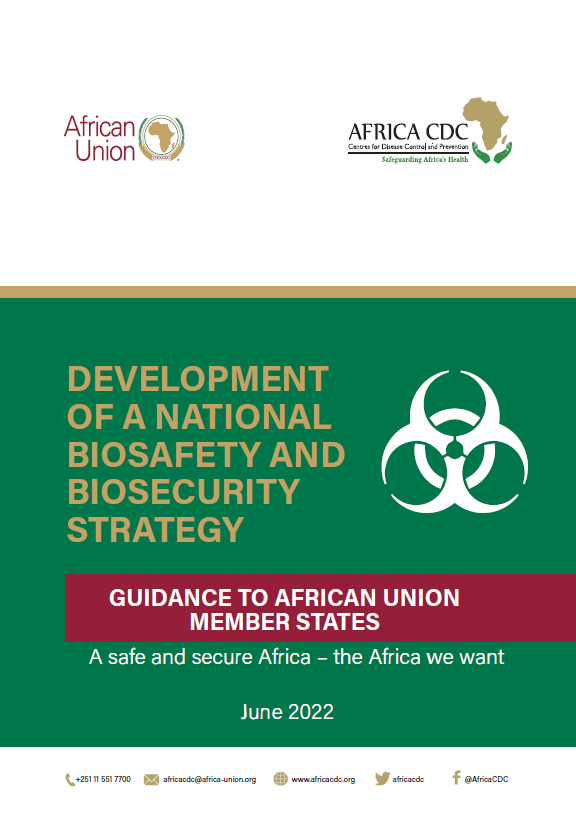FOREWORD
Regional and global measurements matrices of the World Health Organization Joint External Evaluation and the Global Health Security Index, both confirmed the limited biosafety and biosecurity capacities of African Union Member States. The Africa Centres for Disease Control and
Prevention (Africa CDC) Biosafety and Biosecurity Initiative launched in 2019 seek to strengthen the biosafety and biosecurity systems of Member States and enable them to comply with national, regional and global requirements for biosafety and biosecurity.
To esure a coordinated approach to implementation of interventions of the Initiative, Africa CDC developed the Africa CDC Biosafety and Biosecurity 5-Year Strategic Plan (2021-2025). Significant progress has already been made in achieving the set targets including drafting of a Regional Biosafety and Biosecurity Legal Framework that has passed the first stage of review by the African Union, launch of the Regional Training and Certification Program for Biosafety and Biosecurity Professionals, drafting of the Regulatory and Certification Framework for Institutions handling high risk pathogens among others.
The Initiative, has to date, targeted interventions meant to build systems and structures at regional level. These will in turn pave way for smoother implementation at national level using regionally agreed interventions. For example, the Regional Biosafety and Biosecurity Legal Framework
defines the scope of legislation required for effective implementation. All what Member States will have to do is to domesticate the framework and align to national legislation.
At this stage, most of the regional interventions are at an advanced stage that allows cascading to national level implementation. To ensure there is a coordinated and atndardixzed approach to implementation at national level, Africa CDC has developed this guidance documents. The Guidance outlines priority areas and roadmap for cascading of regional initiatives to national level
Dr. Yenew Kebede Tebeje
Head of Division of Laboratory Systems and Networks
